Despite being a body image researcher, I was not prepared for my kids to start saying the word ‘fat’.
When my oldest boy was four, it seemed like he started to say ‘fat’ a hundred times a day – and I freaked out. I tried to ban it like a swear word. Of course that didn’t work, but it also wasn’t necessary. Without all of the negative connotations and associations that we’ve given this poor little word, it is just an adjective – a describing word.
And that’s what we want it to become – a neutral word that we can use to describe lots of things. A macronutrient. A necessary part of our bodies.
But when our kids come home asking “Am I fat?”, we can panic. We can rush in with, “You’re not fat, you’re just right” – but what that does is reinforce the negative associations of ‘fat’. We want to keep this word as neutral as possible, explain that saying this to people can hurt their feelings, but that it is just a word, and that we all have fat.
Usually, what kids are really asking here is, “Am I OK/do I belong?” They see kids being called ‘fat’ to hurt their feelings, and exclude them from friendship groups. They want to know if they are this thing that they see being used to label others as ‘not OK’. They want to know if they are accepted.
So what do we say when our kids come home asking “Am I fat?” There are two main binaries to reject here:
- There are no ‘good’ and ‘bad’ bodies
- We don’t need to be one or the other – thin or fat
Everyone has fat. All bodies are good bodies. Accepting all bodies as they are removes all of the shame of being ‘bad’, and frees us up to nourish and nurture our bodies.
Fat is a really important part of our body, and it wouldn’t work well without it. Fat doesn’t just sit there doing nothing, either. Fat tissue insulates all of our organs and protects us from the cold. Our fat stores ensure that our brain will always have a steady supply of glucose in order to power our body functioning and our thinking. Fat helps us to metabolise a range of vitamins that can’t be absorbed without it.
‘AM I FAT?’
If your child asks you if they are fat, or tells you that someone called them fat, please, as we mentioned earlier, try to resist the urge to say “You’re not fat, you’re beautiful!” as this reinforces some of the power of the word. The aim is to keep your response as neutral as possible. Here’s how you could respond – either at the time, or in a quiet chat afterwards.
- Don’t freak out. Be curious about what they have heard, and the context they have heard it in.
- Empathise with them. You might talk about a time that you were called ‘fat’ as an insult at school or at home, and how it made you feel.
- Explain that some people use the word ‘fat’ to make people feel bad about themselves, and it’s not OK. In our family, we believe that all bodies are good bodies, and we know that all people have fat on their bodies, and it’s really necessary for their body to work properly.
- Emphasise the fact that it’s quite a serious problem if people are teasing each other about the fat on their bodies. Just as we wouldn’t tease someone who has a disability, or whose skin is a different colour, we shouldn’t tease people about their size and shape.
- Tell them that there is nothing wrong with their body, that you love them just as they are.
- Brainstorm some of the things that their body can do that they are proud of.
- Think of some of the kind things they can say to themselves to make them feel better. Empower them with things they can tell themselves and others if this happens again.
The main message is this:
“Your worth has nothing to do with your weight. All bodies are good bodies. Everyone is worthy of respect and love regardless of how they look. “
This is just a short excerpt from our book, Embrace Kids. Taryn and I talk a lot about how and why you should try to improve your own feelings about your body in order to encourage your kids to have a positive body image. The whole first part of the book is dedicated to this actually! You can buy the book here.


